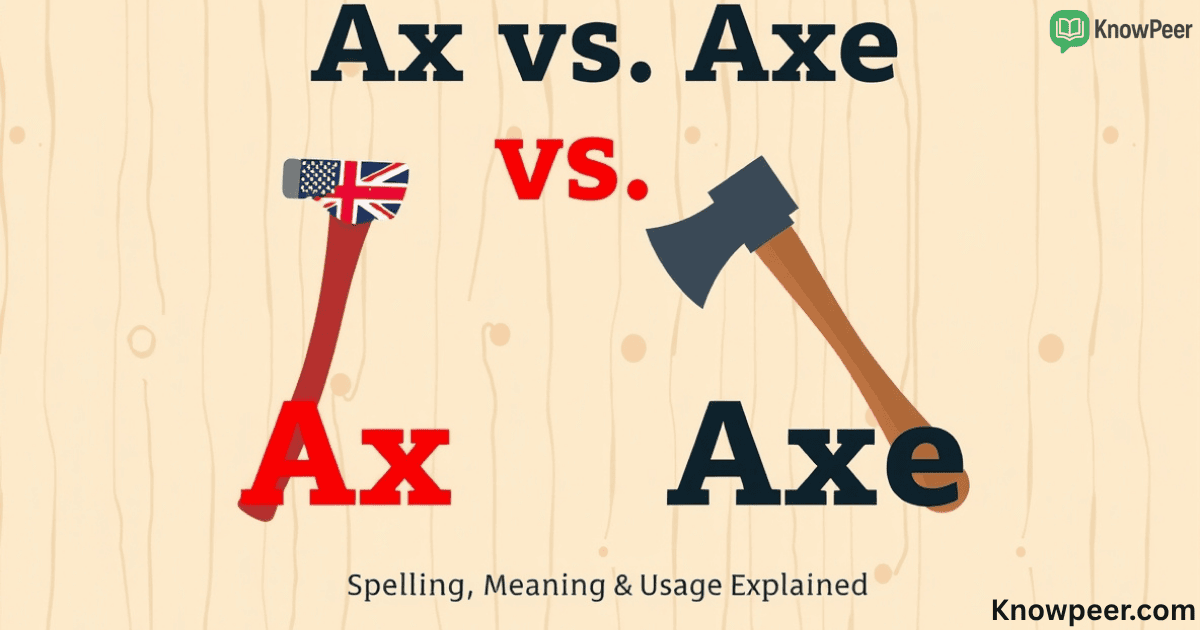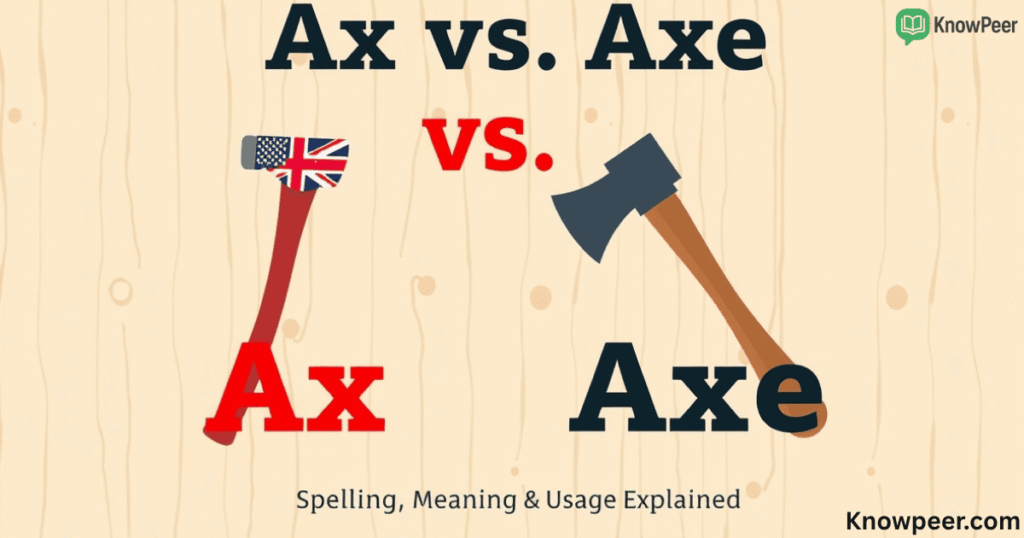When people come across cancellation vs cancelation, confusion often follows. These two spellings look nearly the same, yet only one is considered correct in most modern writing. If you’ve ever wondered whether to write cancellation or cancelation, this guide will clear everything up. We’ll explore the history, the rules of spelling, and the actual usage patterns that show which form dominates in English today. By the end, you’ll know exactly which version to use in any situation.
The Core Difference Between Cancellation and Cancelation
At first glance, cancellation vs cancelation might seem like a minor matter of an extra “L.” But that single letter changes everything. Cancellation is the standard and dictionary-accepted form used across the world. It appears in official documents, books, academic texts, and business communication. When you cancel a meeting, you talk about the cancellation of that meeting.
On the other hand, the meaning of cancelation exists but is rarely used today. While older American texts once showed some preference for this form, modern writing has almost abandoned it. If you write cancelation, many spellcheckers mark it as incorrect. The general consensus across style guides is simple: the correct spelling cancellation or cancelation debate ends with cancellation as the winner.
Historical Background of the Two Spellings
The story of cancellation vs cancelation goes back many centuries and highlights how English spelling has changed over time. The root word cancel comes from the Latin word cancellare, which meant “to cross out” or “make invalid.” From Latin, it passed into Old French as canceller and then into Middle English, where it became “cancel.” When English speakers began forming nouns with the -ation suffix, they naturally created cancellation, doubling the “L” in line with common word formation rules in English. This practice of doubling consonants before certain suffixes gave the language consistent patterns, which is why we also see words like installation and appellation built the same way.
The variation cancellation appeared mainly in the United States during the 19th century. American spelling reform movements aimed to simplify English by trimming what seemed like unnecessary letters. This effort created pairs like color vs colour and traveled vs travelled, and for a short time, canceling historical spelling seemed to follow this trend. Yet unlike those other simplified forms, cancellation never gained broad acceptance. By the 20th century, both American and British dictionaries agreed that cancellation was the dominant and correct form. Over time, readers came to view cancellation as a misspelling rather than a legitimate alternative.
Usage in American vs British English

Many learners assume that cancellation vs cancelation reflects the usual battle between American and British spellings, but that idea isn’t entirely accurate. In reality, both regions overwhelmingly use cancellation today. The rare spelling cancellation did appear in older American texts, especially during the 1800s when spelling reformers pushed for shorter words. At that time, you might find cancellation meaning in U.S. newspapers or legal documents. However, this variation never became fully standardized. Over time, it lost ground and almost disappeared from modern publications. Today, if you search American dictionaries like Merriam-Webster or Oxford American, you’ll find cancellation definition listed as the correct spelling, with cancellation definition noted only as a dated or variant form.
British English never really embraced cancellation at all. In the United Kingdom, the double “L” has always been part of the spelling tradition, and official style guides only recognize cancellation. A closer look at linguistic data supports this pattern. Google Ngram Viewer, which scans millions of books and documents, shows cancellation rising sharply across the 20th century in both regions, while cancellation has nearly vanished. In professional fields like aviation, law, and publishing, you’ll only see cancellation in formal documents. So whether you’re writing for an American or British audience, the safest and most consistent choice is always cancellation.
Rules and Patterns for Double vs Single “L” Words
English spelling often creates headaches because of its grammar rules for suffix -ation. When adding -ation to verbs that end with a single “L,” the letter is usually doubled. That’s why we get cancellation instead of cancelation. The same applies to installation, appellation, and compellation, all of which follow the double “L” spelling rule.
Understanding this helps clear up confusion. People who prefer shorter forms often forget these consistent rules. In fact, the double “l” spelling rule isn’t random. It protects the original pronunciation and structure of the root word. If you remove one “L,” the balance of the word feels off. That’s why readers often pause when they see cancellation—it looks unfinished and unusual.
Practical Examples of Each Spelling in Sentences
Looking at cancellation usage examples makes the difference even clearer. Consider: “The airline announced the cancellation of all flights due to bad weather.” This looks natural and correct. Dictionaries, grammar guides, and editors all support it.
Now look at flight cancellation vs flight cancellation: “The airline announced the cancellation of all flights.” Although the meaning is still clear, the word looks wrong to most readers. In fact, search engines and grammar tools highlight it as a misspelling. This shows how one form has survived while the other faded away. The cancellation definition may exist, but its use in formal writing is nearly extinct.
Quick Tips to Remember the Correct Form
Writers often ask for memory tricks to settle the cancellation vs cancellation debate. The easiest one is this: if you’re adding -ation to a verb ending in -el, keep the double L. That gives you cancellation, just like installation or appellation. If you’re tempted to drop an “L,” remember that dictionaries don’t support it.
Another simple check is technology. Almost every word processor underlines cancellation as a mistake, while cancellation passes without issue. If you still wonder about correct spelling cancellation or cancelation, let your spellchecker remind you. Once you write it a few times, the pattern becomes second nature.
Common Questions People Ask
Readers often want clarity about the wider family of cancel-related words. One common question is: canceled vs cancelled, which is correct? In American English, both appear, though canceled (single “L”) is more common. In British English, “cancelled” with two “L’s” dominates. However, when it comes to the noun form, cancellation definition is consistent across regions, making it the safe and professional choice.
Another frequent concern is whether cancelation meaning is acceptable in formal writing. The answer is almost always no. Style guides like AP and Chicago discourage it. Businesses, schools, and publishers prefer cancellation because it reflects language consistency in writing. The dictionary’s accepted spelling confirms this. As for other forms like “canceling” vs “cancelling,” the regional divide is stronger, but the noun form is unified worldwide.
Case Study: Airline Industry Usage
Airlines provide the clearest example of cancel vs cancellation in action. Whenever storms or emergencies occur, airlines must announce thousands of changes. Their official websites and news statements always use flight cancellation notices, never flight cancelation. This is because passengers expect professional communication and trust established usage.
A quick review of five major airlines’ websites shows complete consistency. United, Delta, American Airlines, Emirates, and British Airways all use cancellation exclusively. This case demonstrates how real-world industries reinforce standard spelling. If cancellation were truly valid, companies would use it. Instead, they avoid it to maintain clarity and professionalism.
Comparison Table: Cancellation vs Cancelation

| Word | Dictionary Status | Frequency in Use | Example Sentence | Correctness |
| Cancellation | Fully accepted spelling | Very common | A flight cancellation notice was issued. | Correct |
| Cancelation | Rare variant | Extremely rare | A flight cancellation notice was issued. | Incorrect |
Famous Quote on Language Consistency
Language works best when it is steady and predictable, and that’s why the cancellation vs cancelation debate matters. Writers, teachers, and editors all stress the need for clear patterns, since readers expect familiar forms. Linguist David Crystal once explained, “Consistency in language isn’t about rules alone, but about trust and clarity.” His words highlight that spelling isn’t just technical—it builds confidence between writer and reader. When you choose cancellation instead of cancelation, you aren’t only following a dictionary accepted spelling; you’re also showing respect for your audience by using the form they recognize instantly.
This idea of language consistency in writing is why professional industries avoid cancellation entirely. Airlines issue flight cancellation notices, schools send cancellation emails, and even legal documents rely only on the double “L” form. If businesses suddenly switched between both versions, readers would feel uncertain and distracted. By sticking to cancellation, English maintains clarity across borders, industries, and generations. That is why the correct choice isn’t about preference anymore—it’s about reliability.
Final Takeaway
When you face the cancellation vs cancelation question, the answer is simple: always choose cancellation. It follows established word formation rules in English, aligns with the double “l” spelling rule, and dominates across both American and British English. The rare cancellation of historical spelling lingers in archives but not in everyday writing. If you want clear, professional, and polished English, remember that only one version holds weight. The cancellation definition is reliable, widely accepted, and easy to remember, while the cancellation definition remains outdated and unnecessary.











